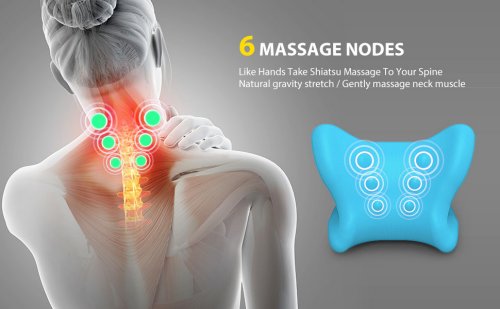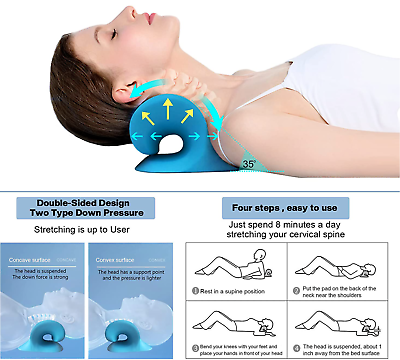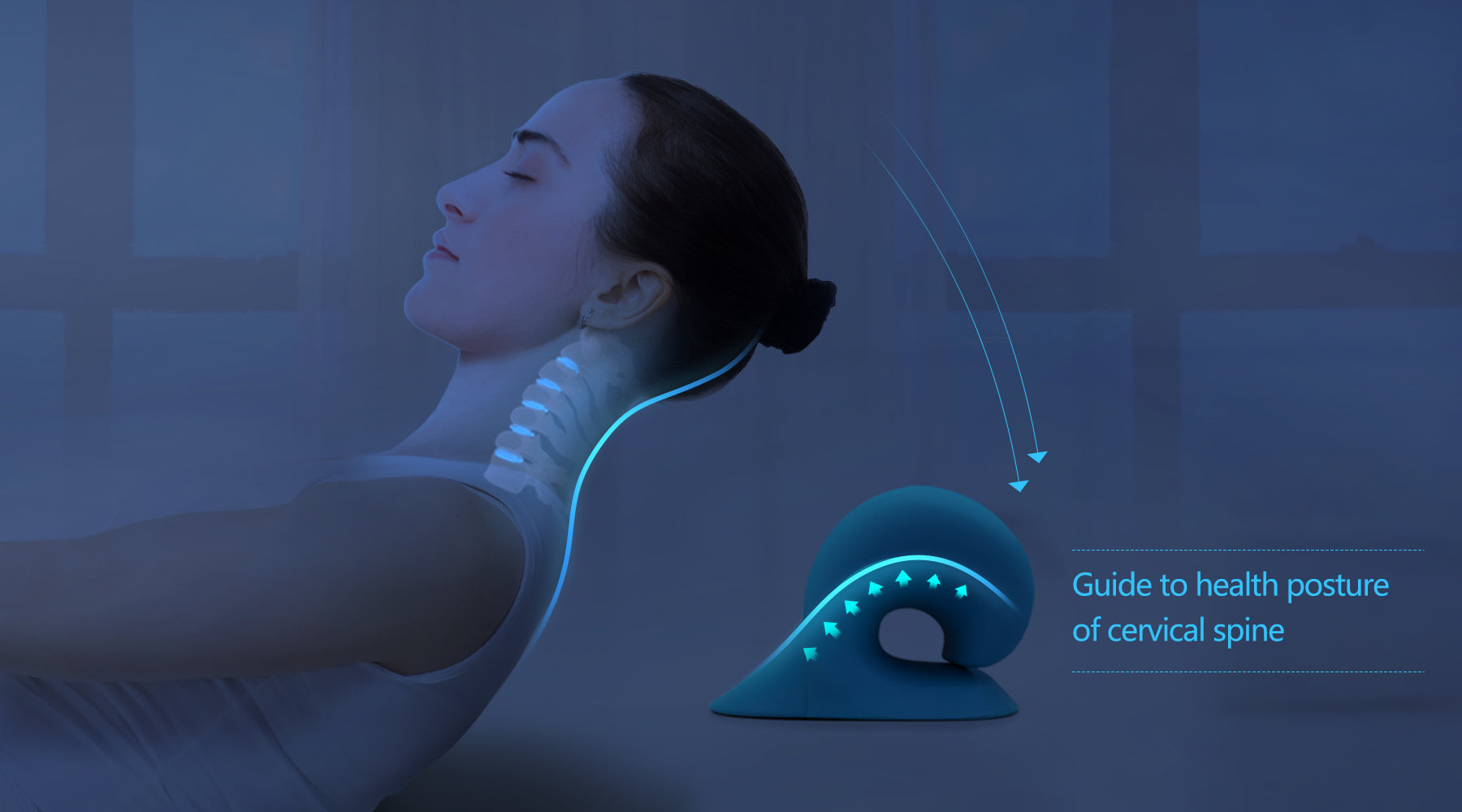Boost Your Stance and Lower Neck Discomfort with the Neck Cloud
Boost Your Stance and Lower Neck Discomfort with the Neck Cloud
Blog Article
The Influence of Stress And Anxiety on Neck Pain: Approaches for Lowering Stress and Discomfort
In today's fast-paced globe, it's no trick that anxiety has come to be a prevalent aspect in the onset and exacerbation of neck discomfort. The intricate connection in between tension and muscular tissue stress typically leaves people seeking remedy for the pain that occurs. By discovering targeted techniques intended at reducing tension and advertising relaxation, one can begin to attend to the source of neck discomfort and work in the direction of a more balanced state of health. Join us on a journey to untangle the influence of stress and anxiety on neck discomfort and find reliable ways to relieve discomfort and enhance total top quality of life.
Recognizing Stress-Related Neck Discomfort
Neck discomfort is an usual issue that can frequently be credited to tension. Stress-related neck pain can manifest as tension, rigidity, or pain in the neck and shoulder location. The link between tension and neck pain lies in the body's physical action to anxiety, which can cause muscle stress and rigidity in the neck muscular tissues. Persistent tension can result in consistent neck discomfort and aggravate existing problems like cervical spondylosis or muscular tissue stress.

Identifying Common Tension Areas
Regularly experienced by individuals under stress, stress areas in the body can give useful insights right into the physical manifestations of emotional stress. One common stress area is the neck, where stress and anxiety typically shows up physically. Tension frustrations, tight neck muscles, and restricted array of activity prevail signs of stress-related neck stress. The shoulders are another typical location where tension accumulates. Tension can trigger the muscles in the shoulders to tighten, causing pain and discomfort. Additionally, the upper back is susceptible to tension accumulation, specifically in people that experience chronic tension. Poor position and extended resting can aggravate stress around. The jaw is likewise a typical area for stress-related tension, as lots of people clinch their jaw or grind their teeth when worried. Recognizing these common tension locations can aid individuals identify the physical signs of anxiety and take actions to resolve them prior to they rise right into persistent pain or discomfort.
Implementing Leisure Strategies
Leisure techniques are important tools for decreasing neck pain caused by stress and anxiety. In addition, activities like yoga exercise and tai chi integrate both physical motion and leisure, making them reliable techniques for reducing tension and neck discomfort. By including these relaxation techniques into your everyday regimen, you can aid manage tension degrees, lower stress in the neck, and reduce pain linked with stress-induced neck discomfort.
Incorporating Self-Care Practices
Incorporating self-care methods is crucial for maintaining overall well-being and managing stress-related neck pain efficiently. Taking part in routine physical activity, such as gentle image source stretching exercises or yoga, can help reduce tension in the neck and shoulders. Practicing great stance throughout the day and taking frequent breaks from extended resting or screen time can likewise protect against strain on the neck muscular tissues.
Additionally, focusing on ample sleep and developing a consistent sleep regimen can contribute substantially to reducing tension degrees and promoting leisure. Developing a calming going to bed routine, such as checking out a publication or taking a cozy bath, can help prepare the mind and body for restful look at more info rest. Furthermore, keeping a well balanced diet plan abundant in nutrients and remaining moistened can sustain total wellness and decrease swelling that might worsen neck pain.
Incorporating mindfulness practices, such as deep breathing exercises or reflection, can aid handle anxiety and promote relaxation. Requiring time for oneself, involving in pastimes, and setting boundaries to shield individual time are also important facets of self-care that can add to minimizing anxiety and alleviating neck discomfort.
Looking For Professional Help
Exactly how can people effectively deal with relentless neck discomfort that is affecting their daily life and well-being? Seeking professional help can be a critical step in handling and minimizing neck discomfort.
Chiropractics physician specialize in spinal control methods to enhance placement and lower stress in the neck location. Physical therapists offer targeted exercises and stretches to enhance muscular tissues, boost flexibility, and enhance general neck function. Orthopedic experts can give innovative clinical interventions such as injections or surgical choices for extreme instances of neck discomfort.
Conclusion

Stress-related neck pain can materialize as stress, stiffness, or discomfort in the neck and shoulder area. The connection between anxiety blog here and neck pain lies in the body's physical action to stress and anxiety, which can result in muscle tension and rigidity in the neck muscular tissues. Stress frustrations, stiff neck muscle mass, and limited range of motion are typical signs of stress-related neck stress. By incorporating these relaxation techniques into your daily routine, you can help handle anxiety degrees, minimize tension in the neck, and minimize discomfort associated with stress-induced neck discomfort.

Report this page